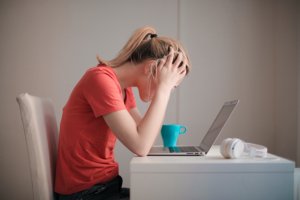Blog by Renate Klaassen, programme coordinator 4TU.CEE TU Delft
In the spring of 2021, we set out to bring together all the research findings gathered over the COVID-19 on-set till the end of 2020 in the four Technical Institutions in the Netherlands. Universities have been going through a roller coaster cycle of rapid adaptation, improvement, consolidation, restoration. In shaping the restoration phase, we need to learn from the year's experiences to determine new ways of doing and experiencing education, provide input for university policy and practices, and suggest avenues for continued research on emerging topics.
COVID-19 education issues
In discussion with the 4TU Board, issues concerning COVID-19 education emerged related to the strategic agenda of the 4TUs. These issues pertained to on and offline community building, best practices for renewed blended learning, flexible education, student-staff ratio and learning spaces, amongst others. Follow-up meetings with policy staff will be taking place soon. In a webinar organised for teachers and education support staff on COVID-19, the white paper findings of 4TU.CEE were summarised by prof. Perry den Brok, Chair of 4TU.CEE, while two of our co-writers shared their next steps in research following up on these findings.
Impact on teaching, learning and well-being
 In his presentation, Perry has shared the impact of COVID-19 on higher education across the institutions, some positive and negative. Positive trends were, of course, that we have managed very nicely to go online. Students satisfaction and learning were not adversely affected or to a minimal extent, and many new good practices were developed. Contrary to these positive findings was the significant adverse impact on well-being for teachers and students due to inadequate home (working) spaces, low motivation, increased workload and isolation, to name but a few. Therefore, the critical recommendations are focused on creating a working vision on blended education, support structures for teachers to better cope with hybrid and blended education, a conception of new tools, and addressing the need for tackling well-being in education.
In his presentation, Perry has shared the impact of COVID-19 on higher education across the institutions, some positive and negative. Positive trends were, of course, that we have managed very nicely to go online. Students satisfaction and learning were not adversely affected or to a minimal extent, and many new good practices were developed. Contrary to these positive findings was the significant adverse impact on well-being for teachers and students due to inadequate home (working) spaces, low motivation, increased workload and isolation, to name but a few. Therefore, the critical recommendations are focused on creating a working vision on blended education, support structures for teachers to better cope with hybrid and blended education, a conception of new tools, and addressing the need for tackling well-being in education.
Student well-being
The 1st presented case and ongoing research was from dr. Uwe Matzat from TU/e, which showed that throughout the COVID-period, there were persistent issues with well-being and problematic home situations such as low study engagement, higher levels of burnout/exhaustion and higher levels of depression. Can we mitigate these trends by pushing the right buttons in the educational context? These can, for example, be; improving the teaching support to students, creating the possibility to get social resources, influencing the home situation, and providing students with autonomy during their studies. All of these have been shown to positively impact students' well-being and mitigate some of the worst effects of COVID-19 lockdowns. TU/e is now focused on using Learning analytics to get more insight into clickstream data, hopefully revealing more of the students' behaviour while going online. They might provide insight into different types of students; those who may have a hard time and students who do pretty well. Uwe invited the participants to think along during the presentation eliciting ideas for measuring clickstream data and practical ideas to support students’ well-being.
Monitoring tool for well-being
 The 2nd presented case from dr. Derek Lomas and PhD Willem van der Maden from TU Delft addressed the importance of well-being as input to education, as it is hard to learn when "you" do not feel well. They have created a continuous monitoring tool for well-being for universities, which can be used to develop a sense of the institution's level of well-being and help design practical interventions to support students and staff. Additionally, they invited us to explore the possibility of well-being as an objective for educational learning, to improve the intrinsic quality of education. The question was: "Should we have learning objectives, assessment, policy objective and/or share best practices on how to embed well-being in Higher Education?" Resulting in a lively debate on the role of well-being in education. To tackle the topic of restoration in the post COVID-19 era, co-participatory design with students and staff is one of the key elements to come up with relevant solutions to incorporating well-being. Many more were discussed and can be listened to in the video of this webinar.
The 2nd presented case from dr. Derek Lomas and PhD Willem van der Maden from TU Delft addressed the importance of well-being as input to education, as it is hard to learn when "you" do not feel well. They have created a continuous monitoring tool for well-being for universities, which can be used to develop a sense of the institution's level of well-being and help design practical interventions to support students and staff. Additionally, they invited us to explore the possibility of well-being as an objective for educational learning, to improve the intrinsic quality of education. The question was: "Should we have learning objectives, assessment, policy objective and/or share best practices on how to embed well-being in Higher Education?" Resulting in a lively debate on the role of well-being in education. To tackle the topic of restoration in the post COVID-19 era, co-participatory design with students and staff is one of the key elements to come up with relevant solutions to incorporating well-being. Many more were discussed and can be listened to in the video of this webinar.
In conclusion, we found that hybrid education or the new blend of online/offline needs a new (re)vision of old values and views on online, on-campus and blended learning. It requires research and practical experimentation to find a balanced and effective curriculum in which cognitive and well-being are part of the educational experience.



